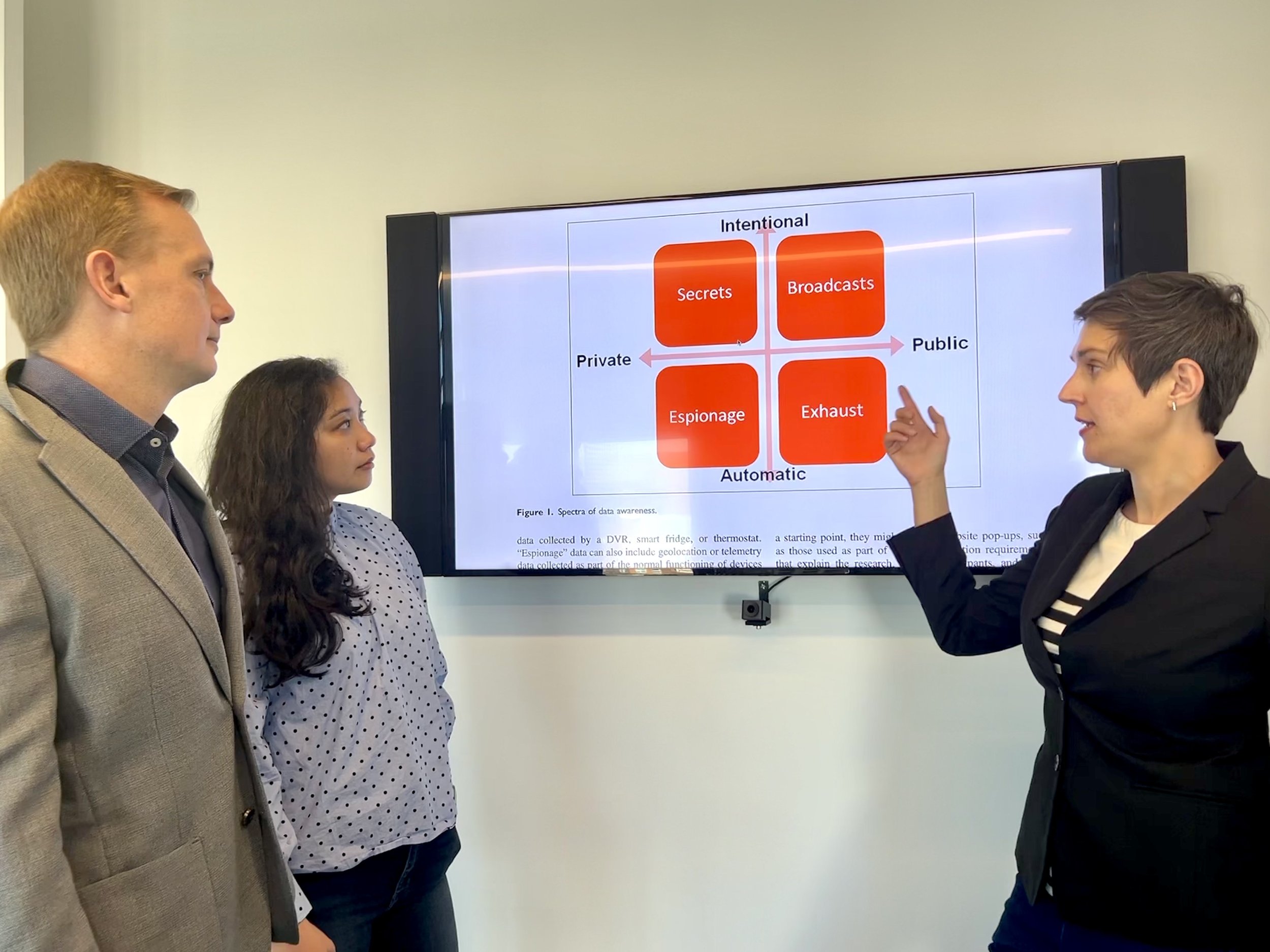Grand Challenges Grant Launches Values-Centered AI Initiative
From discrimination to misinformation, the ability of algorithms to amplify bias has been spotlighted due to its detrimental effects on society. As artificial intelligence (AI) becomes increasingly engrained in our lives, so has the need for new paradigms and technical frameworks to ensure that it’s operating ethically and causing minimal harm.
The University of Maryland is launching a new multidisciplinary center focused on “values-centered AI,” with the goal of developing conceptual and technical frameworks to advance AI in a way that is not only ethical, but also places the well-being of people at the forefront.
The Center for Values-Centered Artificial Intelligence (VCAI)—established with $700,000 in seed funding from the university’s Grand Challenges Grants Program—brings together faculty from computer science, philosophy, education, business, hearing and speech sciences, engineering, public policy and information studies.
The center’s priorities are to establish UMD as a leader in the field of human-centered AI by producing high-quality research, developing an innovative curriculum, and serving as a resource for faculty and students across campus.
“There is currently a real need, as well as a real desire, among undergraduate and graduate students for research opportunities and courses in the area of ethics and AI,” says Hal Daumé III, a professor of computer science and lead principal investigator (PI) of the new center.
Daumé, who is active in the Language Science Center, notes that the main challenge in developing a human-centered AI curriculum is spanning multiple interdisciplinary gaps.
“It’s important to stress that the problems tackled by this new field do not have purely technical solutions—they require the convergence of multiple research methods,” Daumé says.
Also leading the new center are co-PIs John Horty, a professor of philosophy, and Vanessa-Frias Martinez and Katie Shilton, who are both associate professors at the College of Information Studies (iSchool).
All four faculty have appointments in the University of Maryland Institute for Advanced Computer Studies,which is providing technical and administrative support for the center along with the iSchool and Department of Philosophy.
The team plans to focus their initial research efforts on applications that will produce tangible results in two critical sectors—education and transportation.
Their overarching research goals are to develop innovative technology that is responsive to human concerns, philosophical tools for representing and reasoning about values, and human-computer interaction frameworks to better adapt AI systems to people’s needs.
An important aspect of their approach will be designing data collection methods that accurately represent communities and their shared values.
“Training fair AI systems will require researchers to listen and co-create with the communities where the AI technologies will be deployed,” says Frias-Martinez, who specializes in incorporating community stakeholders through personal data and devices.
“I look forward to working with the diverse faculty affiliated with the VCAI center in pushing this new AI paradigm forward,” she says.
—Story by Maria Herd, UMIACS communications group
In addition to Daumé, Horty, Frias-Martinez and Shilton, other faculty involved in the new center are:
Jordan Boyd-Graber, Computer Science and UMIACS
Fabrizio Cariani, Philosophy
Marine Carpuat, Computer Science and UMIACS
Joel Chan, iSchool
John Dickerson, Computer Science and UMIACS
Sheena Erete, iSchool
Eric Hoover, Hearing and Speech Sciences
Furong Huang, Computer Science and UMIACS
Hernisa Kacorri, iSchool
Jing Liu, Teaching and Learning, Policy and Leadership
Eric Pacuit, Philosophy
Susannah Paletz, iSchool
Huaishu Peng, Computer Science and UMIACS
Louiqa Raschid, Information Systems and UMIACS
Debra Shapiro, Management & Organization
Ido Sivan-Sevilla, iSchool
Pratap Tokekar, Computer Science and UMIACS
Mumu Xu, Aerospace Engineering
This article was published by the University of Maryland Institute for Advanced Computer Studies.

